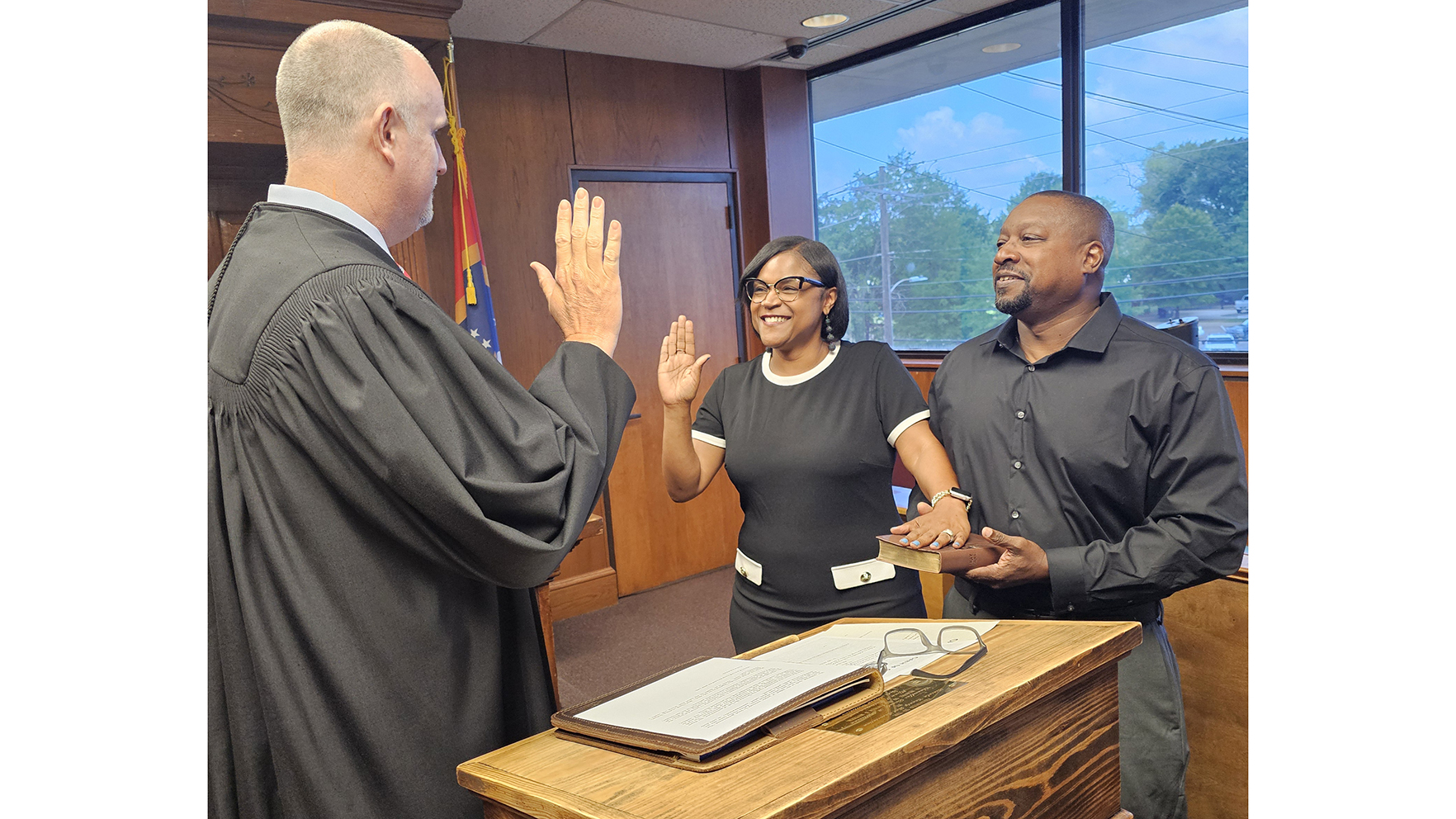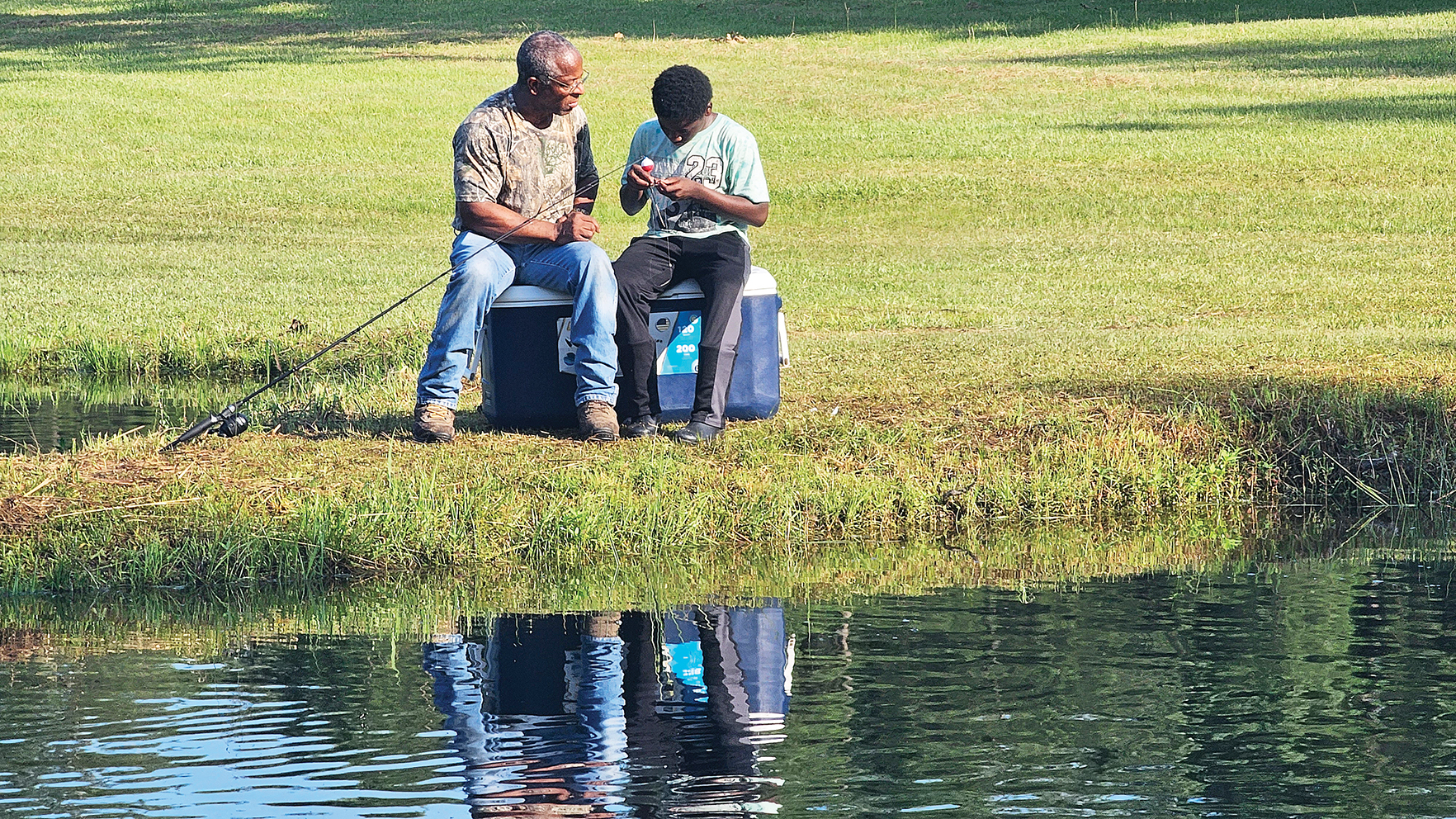Taking marriage vows to heart
Published 8:46 pm Saturday, April 23, 2016
Picture it: You walk into the store not expecting to find anything but then there they are — the perfect pair of jeans. The ones that beckon to you. The ones that you know are a perfect fit even before you try them on.
Sure enough, they hug every curve just right. They complement every move. You know that they have what it takes to grow with you, carry all your baggage and withstand all your torture. You pledge your love and undying devotion.
You cherish them even when the times change and they are no longer in style; always knowing where they are and making sure that they are properly taken care of. You defend them, always promoting their good qualities. You forgive them and give them extra attention when they begin succumb to the pressures of daily wear and tear. You can’t imagine any other jeans taking their place.
These are the jeans that give you a sense of normalcy and reality, and you rely on only this pair of jeans for that. They are comfortable, dependable and feel like home. They are with you ‘til the end. Let no man put asunder what The Gap and denim have joined together.
Ok, so maybe this is a slight exaggeration, but any female that has had this experience knows that I am not stretching the reality of this scenario very much. I think you could make an argument that finding the perfect pair of jeans and finding the man you are going to marry evoke the same level of emotional response. However, I wonder sometimes if the marriage vows we take with our jeans are more understood and applied than the ones we take with our spouses.
What are we really saying when we pledge this and vow that? If you just read the words of marriage vows, they are actually very simplistic and almost a “no brainer” when you are young and in love. However, as the winds of time blow, and our foundation isn’t as solid as on our wedding day, those simplistic words can come back to haunt us. As wedding season approaches, it might be the perfect time to explore to what we are actually committing.
I, ________ take thee, ________ to be my wedded husband/wife,
The word wedded has several versions of the same meaning — to be associated or bound to someone inseparably. For me “bound” never conjures up a positive meaning. I tend to picture myself carrying something very heavy and cumbersome. When we marry, we are, at that point, bound to another person. I guess the question becomes, does this person represent dead weight or someone who will walk with you hand in hand helping you carry the load of life? Do you want to be bound to the person you are about to marry? This is a tricky question. Obviously, if you gave a ring or are wearing a ring, you want to be married to this person. However, are you wanting to be bound to the actual person that is standing in front of you or the person you hope they will become once you say “I do?” The dirty truth is that people are who they are. This is not some piece of annoying parental advice. This is fact. Personality has a strong genetic component, meaning, that change is technically possible, but only after extensive therapy and relearning, not because you put a ring on it. If you are engaged to be married and there are parts of this person that you cannot stand or would rather do without, and the negative thoughts about this person outweigh the positive, you may want to really reevaluate if you want to be bound to this person, the real person, for the rest of your life.
To have and to hold from this day forward, forsaking all others,
The first part of this represents the intimate side of the relationship. You are agreeing that you will be physically intimate with only this person for the rest of your life. There may be a reason that this is typically the first vow we take. Studies have shown that physical intimacy in a relationship is extremely important to the overall health of the relationship.
But does intimacy transcend just the physical? If we really look at what intimacy in a marriage is all about, the physical is just one small part. Intimacy includes sharing the deepest emotional parts of who we are and looking to that person for emotional comfort. Someone that contemplates or actually has an affair usually cites that their emotional needs are not being met by the spouse as the reason they break physical aspect of this vow. Could behaviors such as looking to social media for validation, praise and comfort or divulging emotionally intimate details of confidential conversations with your spouse to others or badmouthing them to your friends and family break the vow of “to have?” There are times in a marriage when outside help is needed, but there is also a way to ask for that without compromising the other person. Seeking counsel from a professional or clergyman may be a good place to start.
Then there is the second part – to hold. The obvious meaning of this phrase would be that it refers, again, to the intimate relations of a married couple. However, what if it means something altogether different? What if it means that this person is a cherished item that has been placed in your care? When we cherish something, we treat it differently. We hold it closer, take time and expend energy and effort to care for it. We don’t keep track of how many sacrifices are made for its wellbeing. Our spouse should be something that we cherish
For better, for worse, for richer, for poorer, in sickness or in health,
There is no hidden meaning here. It means what it says. The problem with these vows is that we truly mean them in the moment we are agreeing to them because at that moment the majority of our understanding of our relationship has been in the context of better, richer, and in health. For complete understanding we have to imagine our relationship at painfully low places: unemployment, foreclosure, bankruptcy, death of a child, terminal illness, debilitating illness, mental illness, unrealized hopes and dreams and many other unpleasant aspects of real life. These are issues that, even if you mentally “go there” and discuss how you might handle it or what your emotions may be, you will never truly know until you experience it. So, you are pledging a vow to only what you’ve known in a short span of time and the great unknown that spans the rest of your life. Exploring these vows with the help of older, stable, mentoring couples or counselors could help couples work through some of those “worse” scenarios so there is at least a foundation of hypothetical experience to build upon when real life crashes the party.
To love and to cherish, ‘til death do us part
The clincher vow! You are pledging to love another human being, which from a 1 Corinthians standpoint means to be patient and kind, not selfish, not vindictive or angry, to tell the truth, protect, hope and persevere, every day for the rest of your life on earth. That means you love them, even if they annoy you, even if they lose their hair and/or get fat, even if they have an extended midlife crisis, or stink as a spouse and parent, or they simply do not deserve it, until you take your last breath. With each passing year, “’til death” takes on less and less of a literal meaning. It now means until the kids are grown, or until something better comes along, or until you no longer meet my needs and/or make me happy. Maybe it is time for all of us married folks to reembrace its literal meaning. It is just as hard for a young married couple to “do as I say not as I do” as it is for a child.
What God has joined together, let no man put asunder
This is a verse from the book of Mark that is commonly stated at the end of the ceremony. It is probably one that we know but don’t pay attention to because we are ready to get to the reception. However, it is a statement that means business. It is a warning to the couple and to the public that this union is serious business. For the couple it is a warning to surround yourself with people who have your best interest as a couple at heart. This may not always be possible. However, your marriage should be sacred and protected and it is up to you to make sure that happens. I also see it as a challenge for those in attendance at the wedding ceremony. It is a challenge for us to hold each other accountable to our vows. We should do all we can to help the newly formed union survive and thrive. We may not be privy to all the happenings in a couple’s life but that should not stop us from praying for them, listening to and really hearing what they are saying, and being an encourager and promoter of a strong marriage. If you are close enough to the couple to attend the ceremony then you are close enough to provide support and encouragement as they travel the road of marriage.
Heather Emory holds a master’s degree in psychology and teaches in the Behavioral Science Division at Hinds Community College.





